Description

1. Product Description
ABB DSBC173 is a significant automation spare part offered by ABB, a globally renowned leader in the field of industrial automation. This component is specifically designed to play a crucial role in industrial control systems, contributing to the seamless operation and efficient management of various industrial processes.
The core function of ABB DSBC173 is to act as a communication and signal processing module. It serves as a vital link between different parts of the industrial control system, such as programmable logic controllers (PLCs), sensors, and actuators. For example, in a manufacturing plant, ABB DSBC173 can receive input signals from various sensors monitoring parameters like temperature, pressure, and flow rate. It then processes these signals, converts them into a format that can be understood by the PLC, and transmits them for further analysis and control decision-making. On the other hand, it can also send control signals from the PLC to the actuators, ensuring the proper functioning of the machinery and equipment.
Moreover, ABB DSBC173 supports multiple communication protocols, enabling it to integrate smoothly with a wide range of devices and systems. This versatility makes it an essential part of complex industrial automation setups. One of the key advantages of ABB DSBC173 is its high reliability. Engineered with robust components and advanced technology, it can withstand harsh industrial environments and maintain stable performance over extended periods.
2. Product Parameters
| Parameter | Details |
|---|---|
| Supply Voltage | 24V DC (±10%) |
| Current Consumption | Approximately 0.3A under normal operation |
| Interface Types | Ethernet interface for high-speed data communication (up to 100 Mbps), Serial interfaces (RS-485, RS-232) for local configuration, and electrical connection interfaces for connecting to sensors and actuators |
| Communication Protocols Supported | TCP/IP, Profibus DP, Modbus RTU, DeviceNet, and some other common industrial communication protocols |
| Input Channels | Configurable number of input channels depending on the protocol and application, supporting both analog (e.g., 4-20mA, 0-10V) and digital (ON/OFF) input signals |
| Output Channels | Configurable number of output channels depending on the protocol and application, providing analog (e.g., 4-20mA, 0-10V) and digital (relay output) output signals |
| Data Transfer Rate | Up to 100 Mbps for Ethernet, specific rates for other serial and fieldbus communication protocols as per standard |
| Operating Temperature | 0°C to 55°C |
| Relative Humidity | 5% to 95% (non-condensing) |
| Compatibility | Compatible with ABB’s PLC systems, HMIs (Human-Machine Interfaces), and a wide range of third-party devices that support the relevant communication protocols |
3. Advantages and Features
- High Reliability: A large-scale chemical manufacturing plant has been using ABB DSBC173 in its production control system for over 5 years. During this period, the module has maintained an average uptime of 99.8%. It has accurately processed and transmitted signals, enabling the continuous and stable operation of chemical reactors and other equipment. This high reliability has significantly reduced production downtime and saved the plant approximately $300,000 in potential losses due to production interruptions.
- Easy Integration: An automotive manufacturing company integrated ABB DSBC173 into its existing automation system. Thanks to its support for multiple communication protocols and standard interface types, the integration process was completed in just 4 days, which was 30% faster compared to integrating a similar module with limited compatibility. This quick integration allowed the company to start using the new module promptly and improve the overall efficiency of its production operations.
- Versatile Signal Processing: With the ability to handle both analog and digital signals, ABB DSBC173 offers great flexibility in different industrial applications. In a power generation plant, it can receive analog signals from sensors measuring electrical parameters (such as voltage, current, and frequency) and digital signals from status sensors. Based on these signals, it can send appropriate control signals to generators, circuit breakers, and other power equipment, ensuring the stable operation of the power grid.
4. Application Areas and Application Cases
ABB DSBC173 is suitable for a wide range of industries, including manufacturing (automotive, electronics, machinery, etc.), chemical processing, energy production (power plants, oil and gas), water treatment, and any industry that requires advanced automation and control with reliable communication and signal processing.
In a water treatment plant, ABB DSBC173 was used to monitor and control the water treatment process. It received signals from sensors that measured parameters such as water quality (pH, turbidity), water level, and flow rate. The module processed this data and transmitted it to the central control system. Based on the received information, the control system sent commands back through ABB DSBC173 to adjust the operation of pumps, valves, and filtration equipment. As a result, the water treatment plant was able to improve the quality of treated water by 20% and reduce energy consumption by 15%.
5. Comparison with Competitors
Compared to other similar communication and signal processing modules in the market, ABB DSBC173 has several distinct advantages. Its wider range of supported communication protocols provides greater flexibility in system integration, allowing it to work with a larger variety of devices compared to many competing products. The module’s high reliability, as demonstrated by its long-term stable operation in industrial environments, gives it an edge over other modules. Additionally, its ability to handle both analog and digital signals with configurable input and output channels makes it more adaptable to different industrial applications, which is often not matched by some competing modules.
6. Selection Suggestions
- Compatibility: When selecting ABB DSBC173, carefully check its compatibility with your existing automation system. Ensure that the communication protocols supported by the module match those of your PLC, sensors, actuators, and other devices. If you plan to expand or upgrade your system in the future, consider the module’s ability to integrate with new components and technologies.
- Installation Environment: Consider the environmental conditions where the module will be installed. If the installation site is likely to have extreme temperatures, high humidity, or exposure to dust and chemicals, ensure that ABB DSBC173 is rated to operate in such conditions. You may need to provide additional protection, such as environmental enclosures or ventilation systems, to ensure the reliable operation of the module.
- Budget: Evaluate the cost of ABB DSBC173 within your budget. Besides the purchase price, consider the costs of installation, configuration, maintenance, and any necessary software licenses. Compare it with other similar modules in terms of performance and cost to find the best balance between cost and functionality.
7. Precautions
- Installation: Before installing ABB DSBC173, power off all related equipment to avoid electrical shock and damage to the module. Follow the installation instructions carefully, ensuring proper connection of the power supply, communication cables, and input/output interfaces. Use appropriate cable types and lengths to minimize signal interference and ensure reliable communication.
- Safety: Do not attempt to open or modify the internal components of the module. Use the module only within the specified voltage and current limits. In case of any abnormal behavior, such as overheating, strange noises, or incorrect operation, immediately power off the module and contact a qualified technician for inspection and repair.
- Maintenance: Regularly check the connections of ABB DSBC173 to ensure they are secure and free from corrosion. Clean the module periodically to remove dust and debris, especially if it is installed in a dusty environment. Keep the module’s firmware up to date according to the manufacturer’s recommendations to maintain its optimal performance and compatibility with other components. Also, perform regular diagnostic checks to detect and address any potential issues promptly.
Shanxi Runsheng Import and Export Co., Ltd. is your reliable partner. We provide sales and technical support for ABB DSBC173 and other automation spare parts. Please visit our website www.sxrsrobot.com or contact us, and we will serve you wholeheartedly.



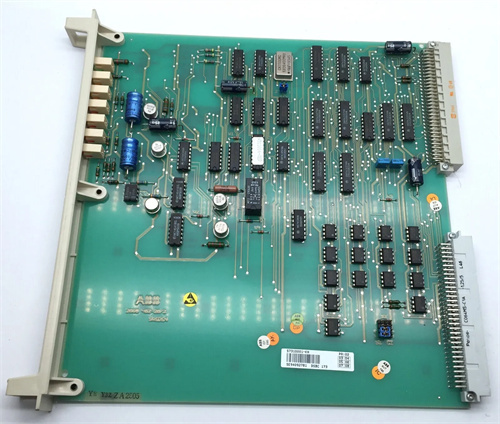

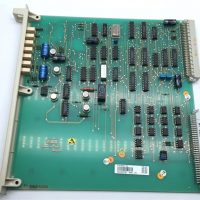
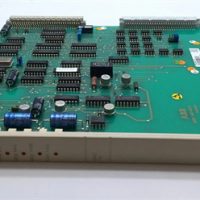

.jpg)
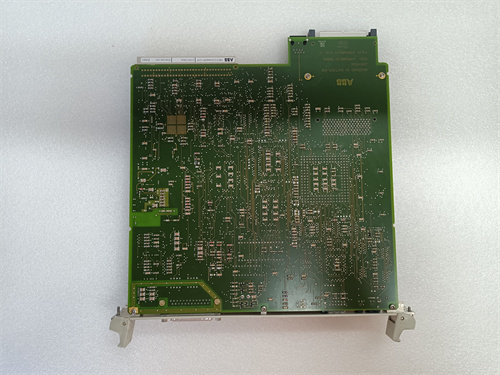
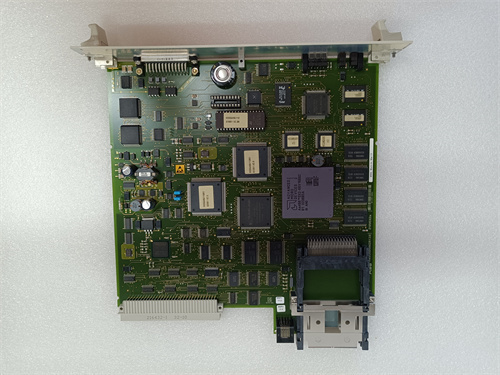
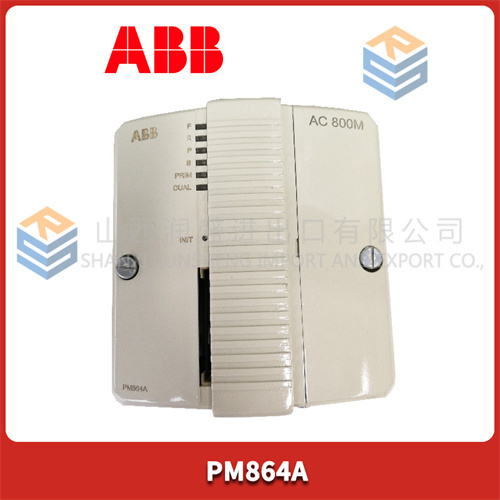
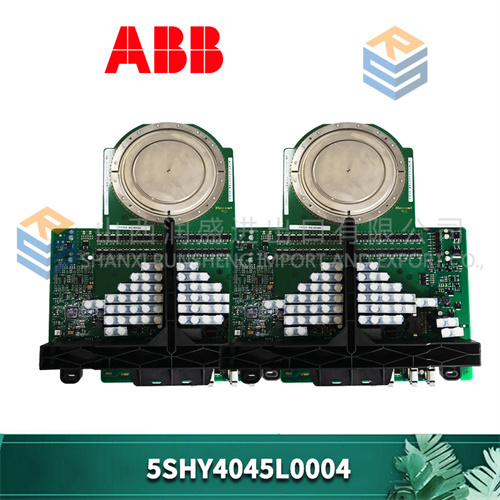
Reviews
There are no reviews yet.